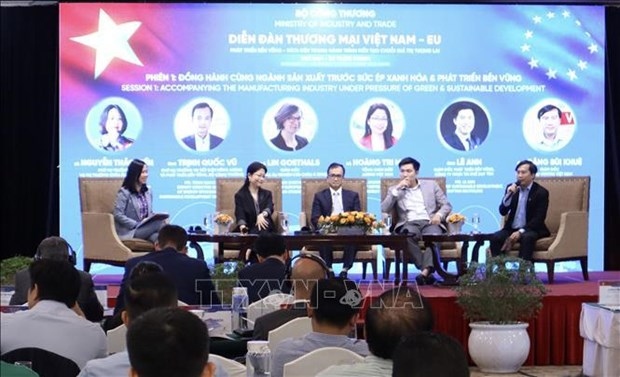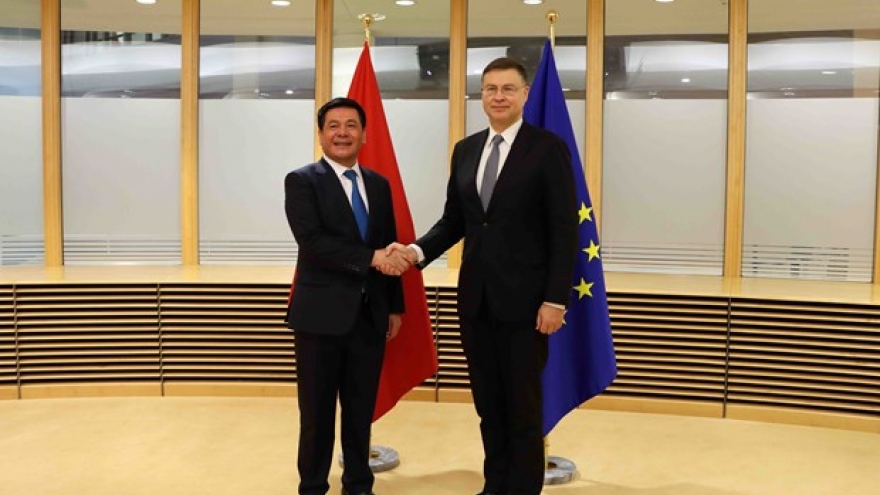Domestic enterprises advised to meet EU’s sustainable development requirements
Domestic firms should transform to adapt to the green and sustainable development requirements of the EU to further enter the supply chain in this market, heard a recent trade forum.

After the pandemic and ongoing geopolitical instabilities accelerating the supply chain shift, many major partners in the world, including the EU, are actively diversifying their supply sources and choosing Vietnam as a strategic destination in the Indo-Pacific region, said Ta Hoang Linh, Director General of the Ministry of Industry and Trade’s European-American Market Department, at the Vietnam-EU trade forum held recently in Ho Chi Minh City.
He noted that the EU is currently the third-largest export market and the fifth-largest import market of Vietnam. Meanwhile, Vietnam has surpassed Singapore to become the largest trading partner of the EU in ASEAN and ranks 11th among the biggest commodity suppliers to the bloc.
According to customs statistics, two-way trade was valued at USD 62.24 billion USD last year, up 9.2% year-on-year, with Vietnam's exports to the EU hitting 46.82 billion USD, an annual rise of 16.7%. In the third quarter of 2023, bilateral trade turnover stood at 15.12 billion USD, down 1.5% year-on-year. However, this decline is considered temporary, as the slowdown has significantly eased and the EU's economy is gradually recovering.
Linh added that the EU-Vietnam Free Trade Agreement (EVFTA) has effectively supported the sides’ goods in accessing each other's markets, meeting their diversification needs.
President of EuroCham Vietnam Gabor Fluit stressed that Vietnam's strong commitment to the EU standards in sustainability will be a key driver attracting FDI, particularly from Europe.
Compliance with new market regulations from the bloc, especially the Carbon Border Adjustment Mechanism (CBAM) and the Corporate Sustainability Due Diligence Directive (CSDDD), requires significant investment from Vietnam in modernising infrastructure, advancing green technology, and developing human resources, he noted.
Fluit underscored Vietnam’s appeal to European investors, citing the country’s robust sustainability standards and initiatives in renewable energy. He mentioned the significant growth in EU investment in Vietnam, particularly in high-tech manufacturing, as evidence of the effectiveness of Vietnam’s free trade agreements.
He cited a survey by EuroCham showing that 31% of its members define Vietnam as one of their three leading destinations globally, while more than a half of them plan to increase investment in Vietnam from late 2023.
Linh urged enterprises to actively renovate their businesses, enhancing their awareness and capacity to quickly adapt to and develop towards a green and sustainability roadmap.
Vinamilk CEO Nguyen Quoc Khanh asserted that despite the high cost, the benefits from green and sustainable transition following market demands will be much higher.


